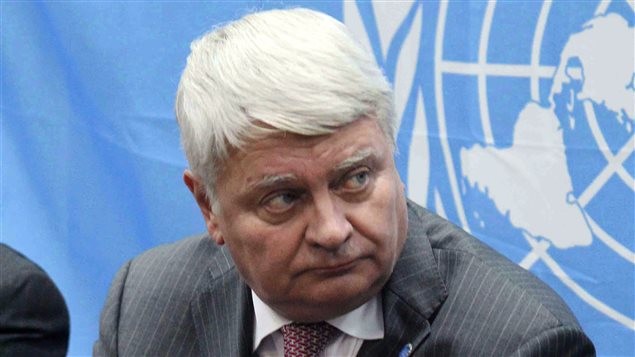The UN Under-Secretary-General for Peacekeeping Operations Hervé Ladsous said yesterday that efforts by South Sudan’s President Salva Kiir to divide the country’s 10 states into 28 new states have fueled violence, adding that the plan is also not practical because South Sudan lacks the money it needs to establish and run the new state governments.
Kiir announced the creation of the 28 states in October last year in a decree known as the ‘Establishment Order,’ in which he claimed authority to change state boundaries and appoint state governors and MPs. An alliance of opposition groups said the decree was unconstitutional because the constitution establishes South Sudan’s ten states and limits the president’s power to appoint and remove governors and MPs.
At a briefing to the UN Security Council in New York yesterday, Ladsous criticized the Establishment Order, calling it a “conflict driver.”
“A unilateral implementation of this order would be detrimental to the peace efforts; it also requires tremendous resources that South Sudan cannot afford,” said the top UN official, who is a French national and former member of the French foreign service.
Ladsous stated, “Conflict drivers like the creation of the new 28 states should be addressed in accordance with the IGAD Summit Decision and the position of the JMEC.” He was referring to a resolution by the East African bloc IGAD in January which called for suspension of implementation of the Establishment Order.
South Sudan’s government nominally endorsed the IGAD decision at a meeting of the Joint Monitoring and Evaluation Commission in Juba, but Kiir’s newly appointed 28 governors have moved forward with establishment of the state governments anyway.
IGAD’s position in January was that implementation of the Establishment Order was not consistent with the peace agreement. The East African bloc expressed concern at steps taken by the South Sudanese government to create the new states. “Such action is inconsistent with the terms of the Agreement to Resolve the Conflict in South Sudan,” reads the communique from IGAD’s ministerial-level meeting at the time.
Ladsous urged the Security Council nations to intervene with President Kiir to persuade him to halt the plan: “I urge the Security Council, in coordination with the African Union, to engage President Kiir on this issue with the aim to halt the implementation of this order until the issue is mutually resolved within the transitional government.”
However, Kiir has said that the 28 states are the demand of the people of South Sudan and that the decree is irreversible. He argues that the creation of more state governments will bring services closer to the people and create more jobs. His Vice President James Wani Igga has encouraged the new state governments to raise revenues locally to help fund their expenses.
Meanwhile, in the same speech Ladsous also said that human rights are not respected in South Sudan, telling the UN Security Council, “Dissent is not tolerated and free speech is penalised.”




